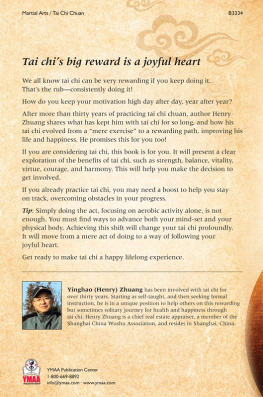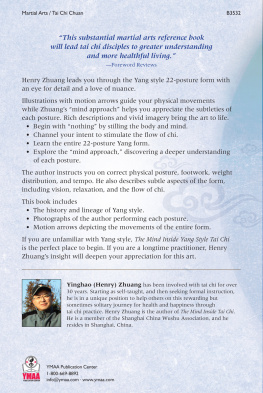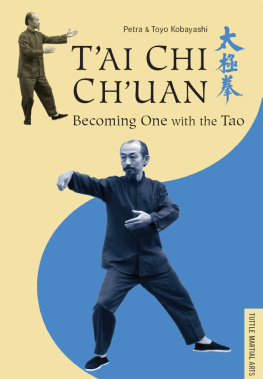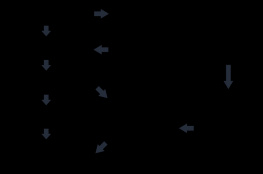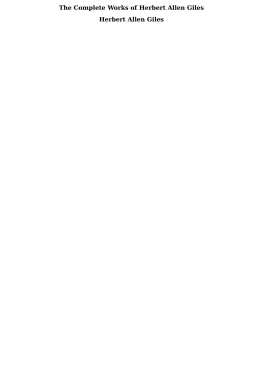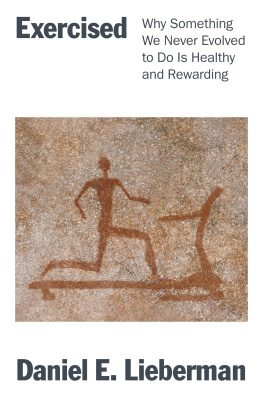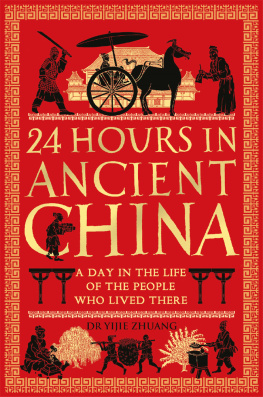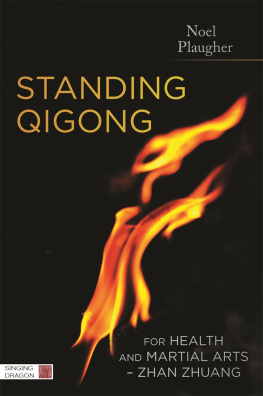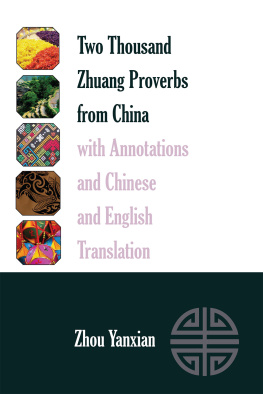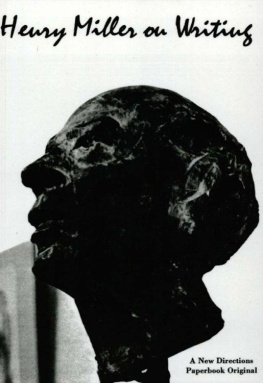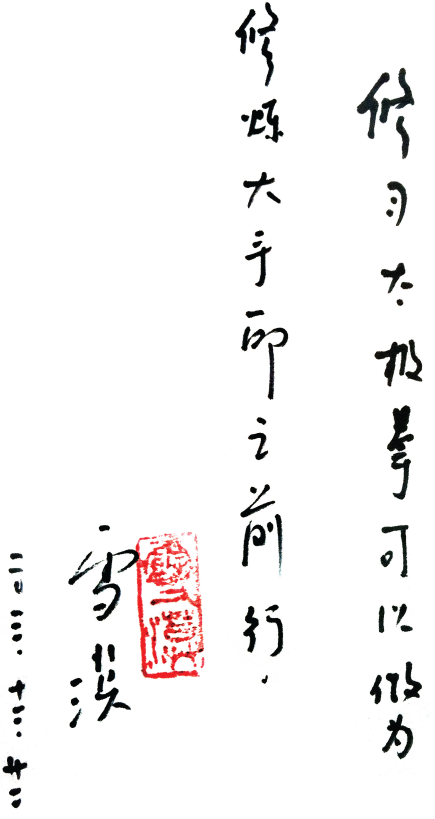TABLE OF CONTENTS

THE MIND
INSIDE TAI CHI
Sustaining a Joyful Heart
Henry Zhuang
YMAA Publication Center, Inc.
Wolfeboro, NH USA
YMAA Publication Center, Inc.
PO Box 480
Wolfeboro, NH 03894
800 669-8892
ISBN: 9781594393334 (print) ISBN: 9781594393341 (ebook)
All rights reserved including the right of reproduction in whole or in part in any form.
Copyright 2015 by Yinghao (Henry) Zhuang
Translation by Lucian Chen
Editing by Leslie Takao
Copyedit and Indexing by Dolores Sparrow
Photos by the author unless noted otherwise.
Drawings by the author unless noted otherwise.
This book typeset in 12 pt. Adobe Garamond
Cover design by Axie Breen
This ebook contains Chinese translations of many terms and may not display properly on all e-reader devices. You may need to adjust your Publisher Font Default setting.
Publishers Cataloging in Publication
Zhuang, Henry.
The mind inside tai chi : sustaining a joyful heart / Henry Zhuang. Wolfeboro, NH USA : YMAA Publication Center, [2015]
pages ; cm.
ISBN: 978-1-59439-333-4 (print) ; 978-1-59439-334-1 (ebook)
Includes bibliographical references and index.
Summary: The author will help you understand why tai chi is an excellent choice for improving health and increasing happiness, while at the same time being a regiment you can sustain for an entire lifetime. He will show current practitioners how to move tai chi practice from a mere act of doing tai chi to a pure joy of tai chi as a way of following your heart.--Publisher.
1. Tai chi. 2. Tai chi--Health aspects. 3. Tai chi--Psychological aspects. 4. Mind and body. 5. Body-mind centering. 6. Vital force. 7. Qi (Chinese philosophy) I. Title.
| GV504 .Z48 2015 |
| 613.7/148dc23 | 1506 |
The practice, treatments, and methods described in this book should not be used as an alternative to professional medical diagnosis or treatment. The author and the publisher of this book are NOT RESPONSIBLE in any manner whatsoever for any injury or negative effects that may occur through following the instructions and advice contained herein.
The activities physical or otherwise, described in this manual may be too strenuous or dangerous for some people. It is recommended that before beginning any treatment or exercise program, you consult your medical professional to determine whether you should undertake this course of practice.
This book is dedicated to World Tai Chi Day.
Learning and practicing taijiquan can serve as the preparation of learning Mahamudra.
Xue Mo
Dec. 12, 2012
Xue Mo is a famous Chinese writer, Vice Chairman of Gansu Authors Guild and a research expert of Mahamudra, and known as the father of contemporary Mahamudra research.
Romanization of Chinese Words
The interior of this book primarily uses the Pinyin romanization system of Chinese to English. In some instances, a more popular word may be used as an aid for reader convenience, such as tai chi in place of the Pinyin spelling, taiji. Pinyin is standard in the Peoples Republic of China and in several world organizations, including the United Nations. Pinyin, which was introduced in China in the 1950s, replaces the older Wade-Giles and Yale systems.
Some common conversions are found in the following:
| Pinyin | Also spelled as | Pronunciation |
| qi | chi | ch |
| qigong | chi kung | ch gng |
| qin na | chin na | chn n |
| gongfu | kung fu | gng foo |
| taijiquan | tai chi chuan | t j chn |
For more information, please refer to The Peoples Republic of China: Administrative Atlas, The Reform of the Chinese Written Language, or a contemporary manual of style.
Formats and Treatment of Chinese Words
Transliterations are provided in the references: for example, Five Animal Sport (Wu Qin Xi, ). Chinese persons' names are mostly presented in their more popular English spelling. Capitalization is according to the Chicago Manual of Style 16th edition. The author or publisher may use a specific spelling or capitalization in respect to the living or deceased person. For example, Cheng, Man-ch'ing can be written as Zheng Manqing.
I would hereby kowtow to express my appreciation to Masters Yu Gongbao, Wei Shuren, Zhu Datong, and Lan Sheng. It is your insights and exquisite accomplishments that give birth to this book.
The first chapter Fundamentals of Taijiquan is a summary of the essence of ancient classic treatises and incisive discussions of contemporary taijiquan masters, along with my learning experiences. The second chapter, Essentials of Mind Approach in Practicing Taijiquan is both an excerpt of the use of internal force and the theory of internal power from The True Essence of Yang Style Taijiquan by Wang Yongquan, The True Essence of Yang Style Taijiquan by Wei Shuren, and my personal experiences and inspirations.
For the past thirty years, especially since I have found the Mind Approach of Internal Power of Yang Style Lao Liu Lu, I have been researching and exploring, and picked up some shallow inspirations along the way. However, due to my limited skills, knowledge, and taijiquan techniques, I compiled this book only to discuss with other enthusiasts the true essence of taijiquan, and, to some extent, justify the value of my life. Should there be any error or mistakes, I would sincerely welcome any corrections and instructions from any master and taijiquan enthusiasts.
A photo of my father learning taijiquan as a young man left a deep impression on me when I was a child, and thus learning and practicing taijiquan became my dream. However, it was not until I started my own business that my dream came true. But of course, I was just an enthusiast without any blood relations to any taijiquan master or inheritance. I was a true grass root of taijiquan. Over the past thirty years, with my passion and persistence for taijiquan, I was lucky enough to find the key, the mind approach, as a path to the real world of taijiquan. Therefore, this book is a combination of what I have learned from taijiquan, and my experience of practicing taijiquan by using the mind approach of internal power
I self-studied the 85 form Yang Style Taijiquan according to the Yang Style Taijiquan (performed and narrated by Fu Zhongwen, recorded by Zhou Yuanlong and proofread by Gu Liuxin), and A Research on Taijiquan (by Tang Hao and Gu Liuxin) in the beginning few years. After that, I looked for information of taijiquan masters from reading taijiquan books and magazines like Wu Dang, The Spirit of Kungfu, etc. Once getting the right information, I would visit in person for advice. As the saying goes: Good faith due to open stone. I was fortunate to learn and practice the Meridian Circulation Taijiquan and Xiao Lian Xing taught by Li Zhaosheng, the creator of Meridian Circulation Taijiquan, on Wudang Mountain. I visited taijiquan researcher Zhu Datong in Beijing for taijiquan theory study and participated in the training class of pushing hands organized by Yan Chengde, a disciple of Yang Style Taijiquan inheritor Zhu Guiting. I went to Beijing during the holidays of the Golden Week for several consecutive years to receive tutoring from Lan Sheng, a student of Wei Shuren who is the creator of the 22 form of the Lao Liu Lu, and combined that study with the the correspondence materials to learn the esoteric lao liu lu handed down by Yang Jianhou. In addition, I was lucky enough to have Guo Zhengxun (from Taiwan), a disciple of Wei Shuren, come to Shanghai many times to tutor me on every move in the 22 form of the Lao Liu Lu. Also, I was introduced to Xu Guochang (a student of Wu Gongyi master and a disciple of Ding Desheng) by Shen Shanzeng to learn Wu (Gongyi) Style Taijiquan. Also, I have learned Sun Style Taijiquan and Four Square Pushing Hands from Shou Guanshun (an inheritor of Sun Style Taijiquan, and a disciple of Zhi Xietang, a disciple of Sun Lutanag).

